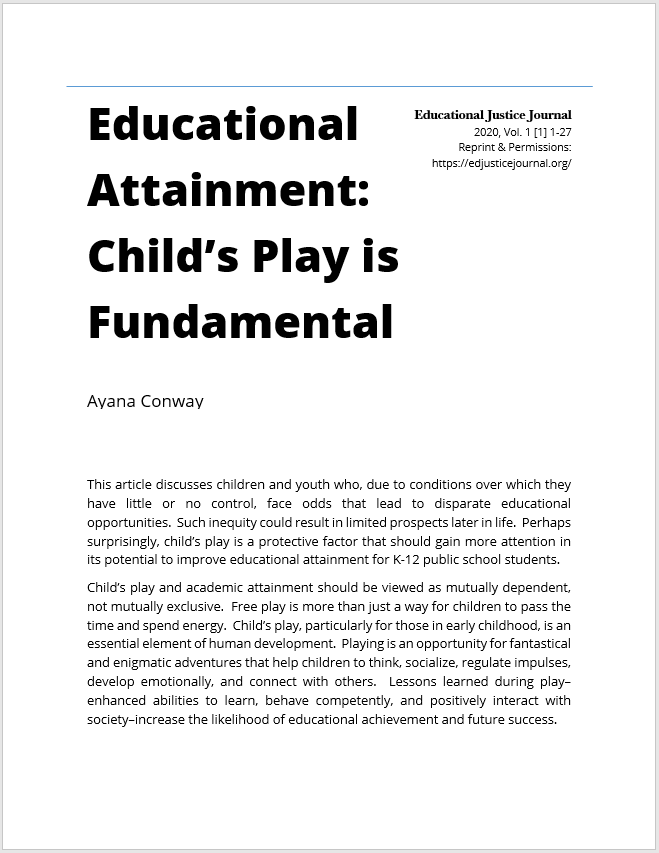This article discusses children and youth who, due to conditions over which they have little or no control, face odds that lead to disparate educational opportunities. Such inequity could result in limited prospects later in life. Perhaps surprisingly, child’s play is a protective factor that should gain more attention in its potential to improve educational attainment for K-12 public school students.
Child’s play and academic attainment should be viewed as mutually dependent, not mutually exclusive. Free play is more than just a way for children to pass the time and spend energy. Child’s play, particularly for those in early childhood, is an essential element of human development. Playing is an opportunity for fantastical and enigmatic adventures that help children to think, socialize, regulate impulses, develop emotionally, and connect with others. Lessons learned during play–enhanced abilities to learn, behave competently, and positively interact with society–increase the likelihood of educational achievement and future success.


